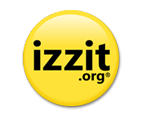Econ is Everywhere!
Chapters:
Glossary
- chattel - property that is not attached to land; it can be moved. Sometimes referred to as personal property
- comparative advantage - efficiency gained when an organization or person focuses efforts on what they do best and trade with others for what they efficiently produce
- contract - an agreement between two or more parties that when valid has the force of law. This may be written or verbal
- cost - an amount incurred to obtain something. Alternatively, it is something given up resulting from a decision to acquire something
- equilibrium price - the price in a market-based economy where the quantity of goods/services supplied is equal to the quantity of goods/services demanded. It is the intersection of the plotted supply and demand curves.
- free marketplace - a market system in which the prices for goods and services are determined by consumers and producers with little to no government or centralized guidance
- incentive - any factor, financial or non-financial, that provides a motive for a particular course of action, or counts as a reason for preferring one choice to the alternatives.
- intellectual property - property that includes creations of a person's intellect, and includes such things as copyrights, patents, and trademarks
- Invisible Hand - Adam Smith described this as the mechanism that governed the market without a central mastermind
- law of demand - demand for a good or service that has an inverse relationship - the lower the price, the more likely a person will buy the good or service
- law of supply - supply for a good or service has a direct relationship - as the price a buyer is willing to pay goes up, the seller is willing to sell more of that good or service
- loss - a result when costs are not covered by income; the business incurs a negative profit
- marginal - in decision-making, at the edge of choosing one outcome or another
- marginal cost - the cost of making one more product or service
- marginal utility - the value of satisfying a need by buying just one more product or service
- marginal value - the value a person assigns to consuming one more good or service unit
- market-clearing price - the intersection of the demand curve - one will buy until price exceeds value - and the demand curve - one will sell until cost exceeds price, including profit
- marketplace - a location, physical or digital, where people exchange goods and/or services
- opportunity cost - in decision-making, the spent time, money, and/or effort that could have been used to do or acquire something else
- personal property - property that is not attached to land; it can be moved. Sometimes referred to as chattel
- price - information that helps buyers prioritize how they will satisfy their needs based on the current unmet needs
- profit - money earned above what it costs to make the good and service
- property - something that can be owned and is generally classified as intellectual, personal, real, and/or chattel
- real property - includes things attached to land, such as a house
- return on investment -when you invest in something, whether it is time or money, there is an expectation that it will be worth it to you in some way
- rule of law - assures buyers and sellers that they are legally entitled to the result of the marketplace exchange
- title - entitles owners of property to do with as they wish
- tradeoff - similar to opportunity cost in decision-making, the spent time, money, and/or effort that could have been used to do or acquire something else
- Tragedy of the Commons - results when people, acting in their own self-interest, use the common property in a manner that diminishes the value to society
- utility - what economists refer to as needs satisfaction

